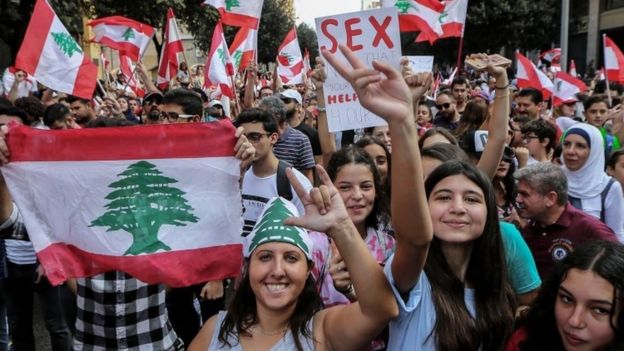
This article is more than
6 year old
Hundreds of thousands of demonstrators flooded the streets on Sunday for a fourth day of anti-government protests.
The protests were triggered in part by a plan to tax calls on WhatsApp and other messaging services.
The government quickly dropped the tax, but the protests have morphed into wider demands for reform.
The Lebanese economy is struggling with low growth and high debt. Austerity measures have sparked anger and deteriorating infrastructure has made power cuts and piles of uncollected rubbish part of daily life.
On Friday, Lebanon's Prime Minister, Saad Hariri, gave his coalition partners 72 hours to back economic reforms.
Government sources cited on news agencies said an agreement was reached on Sunday.

The agreement is said to include plans to privatise key utilities, reduce politicians' salaries and measures to address Lebanon's budget deficit.
The reform package is expected to be approved at a cabinet meeting on Monday.
Lebanon has long had a political system designed to balance power between the countries main religious groups.
Read More (...)